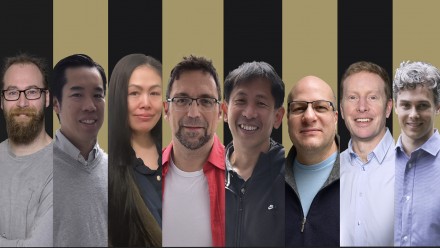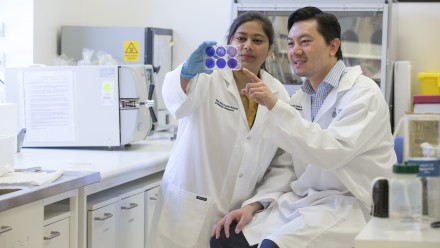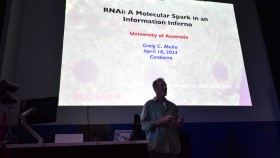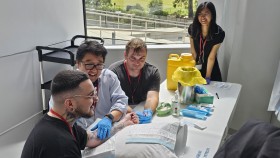Disease fighting researcher’s quest for ‘magic bullet’ wins national award
Professor Si Ming Man, from The Australian National University (ANU), has been honoured with a $1.25 million dollar grant to advance our understanding of the immune system and find new ways to fight bacteria and viruses.
Professor Man received one of only two prestigious CSL Centenary Fellowships awarded in an online ceremony held by The Australian Academy of Health and Medical Sciences (AAHMS) on Thursday 15 October, which celebrated the best brains in science.
The researcher said the five-year continuous support for his research was “incredible” and would allow him to find “a long-term solution to the growing resistance to antibiotics”.
“By harnessing the power of the immune system to fight against an emerging group of multi-drug resistant bacteria or superbugs, we potentially can bring new hopes to people all around the world affected by drug resistant infections.”
Professor Man’s work uncovered how bacteria interacts with the immune system and is vital in understanding and treating serious cases of food poisoning and sepsis.
“My research is about trying to work out how a family of disease-fighting killer immune proteins work in the body,” Professor Man said.
“We discovered there are certain members within this protein family can directly sense and recognise, target and kill specific pathogens that invade the body.
“We think there are other candidates that work together to try to defend our own body against various microbes including bacteria and viruses.
“I'm hoping to discover a magic bullet and have a whole panel of killer immune proteins that we can pick and choose from for specific bacteria and viruses.”
ANU College of Health & Medicine Dean, Russell Gruen, said: “Professor Man’s research is at the very forefront of how our bodies fend off threats from the outside. This distinguished award will further him in his goals of greater understanding and better harnessing of our immune system”.















